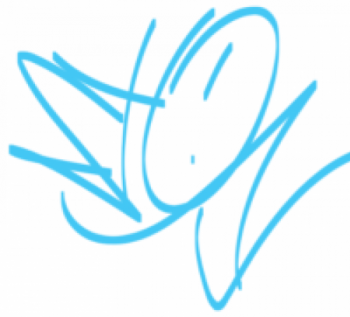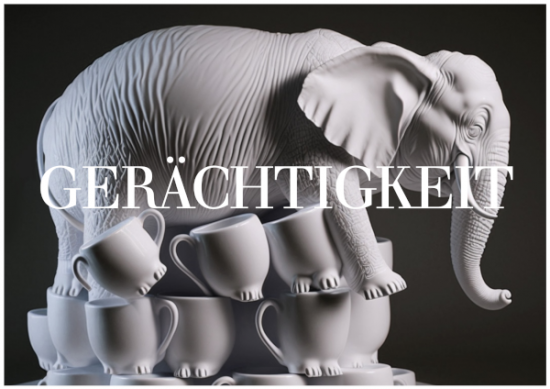As a reader of the weekend edition of the Berliner Zeitung, Raban Ruddigkeit’s image & word commentary “Wortstoerung” caught my attention. Raban creates it with the help of learning algorithms. He also has a fresh take on China, East Germany and power.
Gerd Stodiek: In the weekend edition of the BLZ, readers can find the image & word commentary “Wortstoerung”. How did the cooperation with the Berliner Zeitung come about?
Raban Ruddigkeit: From 2015 on, I had a weekly “graphic commentary” in the Tagesspiegel on current political issues. It was in the context of various texts on the same topic on a page called “Causa.” At some point the column didn’t really exist anymore & also my contact persons ended up somewhere else.
That I was allowed to do something similar in the Berliner Zeitung after a half a year break, I owe to a nice recommendation of a good friend. And while at the Tagesspiegel, they kept urging me to do without words after all, here they are now in the foreground. The backgrounds I’ve developed for some time with artificial intelligence & serve actually only a decoration of the statements important to me.
Is it possible to purchase the image & word commentary “Wortstoerung” from you as a print?
Not really. But I do plan, after a relevant amount has come together, to maybe make a postcard book or calendar with it. The images are piling up here & only a very small portion of them even make it into the paper.
When it comes to visibility for artists, is it a unique selling point if they don’t use social media? I’ve noticed in conversations with teenagers that not using the smart phone is kind of punk.
My daughter is 22 years old & marketing manager in her own company. And she asked me for an analog camera with real black & white film for christmas & now finds it totally fascinating how long it all takes & how much you have to concentrate. Maybe you should ask her about that.
I am – to use a play on words – social müdia (müde means tired in German). I can’t really take it all seriously anymore, but I don’t really want to let go of it either. Communication has always interested me & here you can find it all very pure & quite unfiltered. In the background, conservative algorithms are raving about re-cementing the old power relations: Loud idiots up & quiet ideas down. So thanks for nothing new ;-)
You have participated in China, among others, in the ANTI – NOVEL CORONAVIRUS 100 POSTERS, exhibition. What are your points of contact with art in China, do you perceive art more subversive? Corona and China is also a very political issue.
Again, it’s more personal contacts in the middle kingdom & my longtime involvement with Asian cultures & philosophies that lead me to not see it as marginal or backward as some do.
Asia has developed paper, writing & design centuries earlier than Europe & even today a much broader idea of culture than we white beings, who still look at it with a comparatively colonial view. Asia is more aware of the ambivalence & paradoxes of human existence & that has always inspired me very much.
With the books “The East: A West German Invention” by Dirk Oschmann and “Empowerment East” by Thomas Oberender, the authors speak from the soul of many people in the East, especially with regard to the transformative years afte the Wall fell. It is too easy to forget the amazing courage of the GDR citizens, as pioneers of the first, peaceful, democratic revolution, which actually changed something and arose from the people. What should we learn from the East and where are the strengths?
A really complex question & I’ll start from the beginning. My very personal repoliticization began around 2015, when the first big wave of refugees came to Germany. Somehow it was already noticeable that the spring party is over & reality brings us back to its very dusty & stony ground. However, that it would come to such a variety of conflicts & social disputes, was probably not foreseeable for anyone at that time.
In the mean time I discovered that a lesbian woman raises two sons with her wife with a so-called migrant background & at the same time can openly advocate xenophobic theses. That a warm-hearted columnist of Turkish origin calls for the reconstruction of the wall & the first commissioner for East Germany reminds his own people that they are actually only damaged goods.
However, very private memories of encounters in my personal & professional context came back to the surface of my subconscious. Sentences that I actually swallowed, but never really digested. Is it the right time to open an old barrel again?
Let’s try it with statistics; if you combine the Germans with a so-called migration background and those from the so-called GDR, you are dealing with a mathematical majority, which in turn has nothing more to do with a so-called “majority opinion” of the West Germans who don’t want to be named (repetitions of words are completely unintentional).
Nevertheless, I do not want to make myself completely common with the theses of an Oberenders or Oschmanns, which transfer our zone jokes from the early nineties only into the bearable. My recommendation is the just published book “Beyond the Wall” by Katja Hoyer. Already a bestseller in Great Britain, it will soon help to describe all-German history a bit more facetted here as well.
What project are you enjoying right now and where can we see it?
I guess it’s always the next project & as it is with these new projects, I can’t reveal too much about it yet. But I’m always interested in the latest technologies when it comes to communication. It’s about creativity & AI in the broadest sense & actually makes my everyday life very exciting again.

